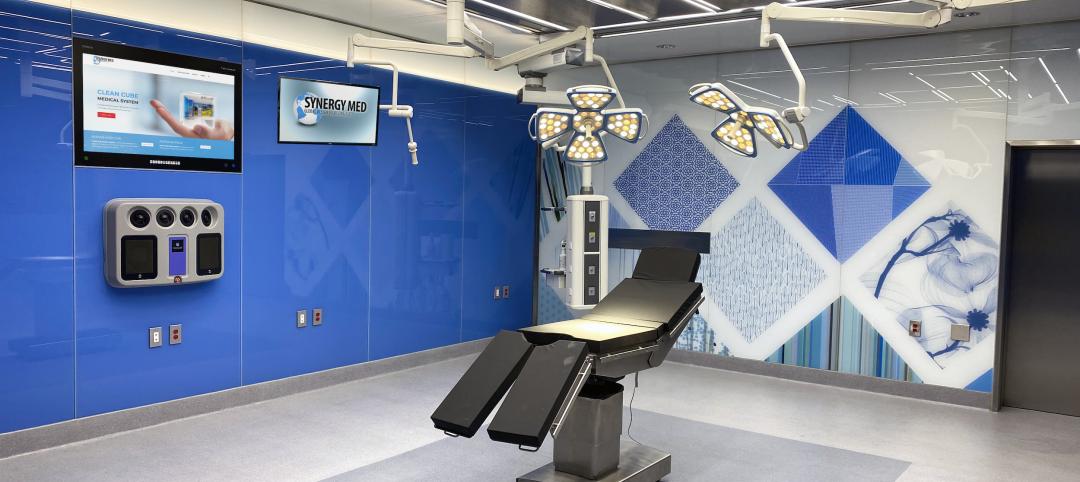One of my negotiation training clients asked me for help in getting ready for a job interview and how to position herself to negotiate the best compensation offer. We talked for a bit about the company she was interviewing with. I quickly learned that she knew exactly what she wanted and had prepared her speech in preparation to get the offer that she wanted. The glaring omission from her preparation was an understanding of what the company was looking for and why they were talking to her, in particular.
She spent the better part of our time together explaining to me why she was particularly qualified for the position and how her unique set of experiences and prior jobs positioned her for the exact job the comany was looking to fill. Without realizing it, my client prepared herself for the negotiation by explaining to me the company, the position, and how her skills and experience fit the needs of the company and the open position.
She later remarked, "Wow, I feel so ready to go into this meeting! You really helped me a lot! I would not have been prepared without this talk with you."
Through some focused effort and key questioning, we were able to hone in together on the key issues of her concerns about the position, what she needed as far as a compensation package, and, almost more importantly, what she believed the company was looking for in the open position. She certainly may have accomplished her preparation without my assistance, but together we were able to examine some items she missed on her own.
Women often commit three "deadly sins" of negotiation preparation. First, we feel like we can do it on our own and do not want to bother someone else who is not involved in the negotiation. Women tend to not want to burden others with their individual needs. Particularly in a salary negotiation; women do not want to ask for help. But, one of the best ways to prepare is to have a sounding board—a friend, colleague, client, or spouse who is willing to listen and ask careful, but probing questions is often the best way to investigate the omissions in your preparation. Having another perspective is always useful.
Second, like my client, women often succumb to fear in how to take next step and simply stop preparing. My client felt frozen in her next step and her fear got the better part of her ability to prepare adequately. She knew she should prepare but did not know how to get started. She was ready to either give up and not pursue the job or just go in and wing it. Neither was the right choice. She had all of the facts and information at her fingertips, she knew her strengths and her own track record, and knew a lot about the company. But she did not know how to put the different items together. Once we started on the road to connecting the different items to allow her to express how her skills and background met with the needs of her negotiating partner, she got excited and was ready to roll.
Third, women often fail to take stock of the other side's perspective. It can be challenging to put yourself in someone else's shoes. But, women in particular, are often adeptly skilled at doing this and just are not aware that this step is one of the most important and effective preparation steps for an effective negotiation. Thinking of your counter-part as your negotiation "partner" instead of your opponent can help with this. If you are negotiating a contract with a new client, you need to know what the client needs, what the client's expectations are, and what experiences the client has had in the past. Women generally are skilled at the relational skills that can elicit this information even from a brief meeting. The same items would be needed for a salary negotiation—knowing the needs, expectations, and prior experiences are critical to being fully prepared.
One additional step in preparing for a negotiation is to prepare the other side. What, you say? I need to get my opponent (oh, I mean "partner") prepared?! Isn't that going to work against me? Shouldn't they do their own work? Not necessarily. When you know the ultimate end goal for your negotiation and you can anticipate the end goal for your negotiation partner, you can find areas where you can concede items that are of high importance to your partner but low importance for you, giving them something without costing you a lot.
Additionally, there may be key negotiations terms that you otherwise would not be aware of if you did not take time to prepare your partner. You can accomplish more in your negotiation if everyone is prepared. Going back to my client in her job interview and salary negotiation - this was evident during her meeting with the prospective employer. She had a team meeting with the executives of the company. But prior to the meeting, she not only found out who was going to be in the meeting and their role in the company, but also provided her contact with a list of items that she wanted to discuss.
Instead of fearing that she would give them time to develop counterpoints to her questions and "ask" items, instead, she understood that the hiring decision was a team process and gave the team information in advance so that whey they met, they honed in on the two items of concern and they negotiated those deal points. The end result, the executive team was thoroughly impressed with my client's foresight and thought in her preparation and the negotiation was streamlined, leading to a successful result for both parties.
You can implement these four steps as well in all of your negotiations.
1. Get a sounding board and work though the issues; practice what you will say!
2. Don't be afraid! Use the facts you have - or gather those you do not - and push through. Look for connections between the facts and the needs of your negotiation partner.
3. Take stock of the other side's perspective and needs. Think of them as your "partner" in getting the deal accomplished. Then you can prepare for it and how to respond.
4. Prepare your negotiation partner. Don't let lack of preparation on their end stymie your efforts at a successful deal.
In our next segment, we will look at questions about how to start a negotiation— whether, and when, to be the first one out of the gate or to demand a opening demand/offer from your partner.
Keep negotiating! Remember preparation is key. Keep me posted on how you are doing in your preparation and post any questions you have on some of the how-to implement these four steps.
Related Stories
Resiliency | Jul 27, 2023
'Underground climate change' can damage building foundations, civil infrastructure
A phenomenon known as “underground climate change” can lead to damage of building foundations and civil infrastructure, according to a researcher at Northwestern University. When the ground gets hotter, it can expand and contract, causing foundations to move and sometimes crack.
Adaptive Reuse | Jul 27, 2023
Number of U.S. adaptive reuse projects jumps to 122,000 from 77,000
The number of adaptive reuse projects in the pipeline grew to a record 122,000 in 2023 from 77,000 registered last year, according to RentCafe’s annual Adaptive Reuse Report. Of the 122,000 apartments currently undergoing conversion, 45,000 are the result of office repurposing, representing 37% of the total, followed by hotels (23% of future projects).
Hotel Facilities | Jul 26, 2023
Hospitality building construction costs for 2023
Data from Gordian breaks down the average cost per square foot for 15-story hotels, restaurants, fast food restaurants, and movie theaters across 10 U.S. cities: Boston, Chicago, Las Vegas, Los Angeles, Miami, New Orleans, New York, Phoenix, Seattle, and Washington, D.C.
Sports and Recreational Facilities | Jul 26, 2023
10 ways public aquatic centers and recreation centers benefit community health
A new report from HMC Architects explores the critical role aquatic centers and recreation centers play in society and how they can make a lasting, positive impact on the people they serve.
Multifamily Housing | Jul 25, 2023
San Francisco seeks proposals for adaptive reuse of underutilized downtown office buildings
The City of San Francisco released a Request For Interest to identify office building conversions that city officials could help expedite with zoning changes, regulatory measures, and financial incentives.
Urban Planning | Jul 24, 2023
New York’s new ‘czar of public space’ ramps up pedestrian and bike-friendly projects
Having made considerable strides to make streets more accessible to pedestrians and bikers in recent years, New York City is continuing to build on that momentum. Ya-Ting Liu, the city’s first public realm officer, is shepherding $375 million in funding earmarked for projects intended to make the city more environmentally friendly and boost quality of life.
Market Data | Jul 24, 2023
Leading economists call for 2% increase in building construction spending in 2024
Following a 19.7% surge in spending for commercial, institutional, and industrial buildings in 2023, leading construction industry economists expect spending growth to come back to earth in 2024, according to the July 2023 AIA Consensus Construction Forecast Panel.
Hotel Facilities | Jul 21, 2023
In Phoenix, a former motel transforms into a boutique hotel with a midcentury vibe
The Egyptian Motor Hotel’s 48 guest rooms come with midcentury furnishings ranging from egg chairs to Bluetooth speakers that look like Marshall amplifiers.
Office Buildings | Jul 20, 2023
The co-worker as the new office amenity
Incentivizing, rather than mandating the return to the office, is the key to bringing back happy employees that want to work from the office. Spaces that are designed and curated for human-centric experiences will attract employees back into the workplace, and in turn, make office buildings thrive once again. Perkins&Will’s Wyatt Frantom offers a macro to micro view of the office market and the impact of employees on the future of work.
Healthcare Facilities | Jul 19, 2023
World’s first prefab operating room with fully automated disinfection technology opens in New York
The first prefabricated operating room in the world with fully automated disinfection technology opened recently at the University of Rochester Medicine Orthopedics Surgery Center in Henrietta, N.Y. The facility, developed in a former Sears store, features a system designed by Synergy Med, called Clean Cube, that had never been applied to an operating space before. The components of the Clean Cube operating room were custom premanufactured and then shipped to the site to be assembled.

















